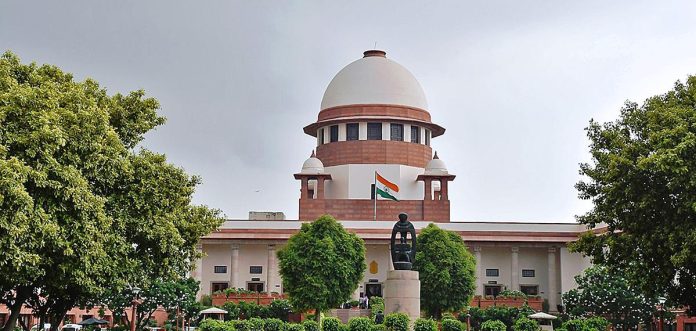NEW DELHI, Oct 16: The Supreme Court on Monday dismissed a petition challenging the designation of lawyers as senior advocates, saying the mechanism to grant the designation was not arbitrary.
A bench headed by Justice Sanjay Kishan Kaul, while delivering its verdict on a plea filed by advocate Mathews J Nedumpara and seven others, said the writ petition was a “misadventure”, largely of Nedumpara, “in continuation of some of his past misadventures”.
“If one may say the indulgence to the junior members of the bar, in a sense, is more than a senior member because it is also a part of the duty of the bench to help in the evolution of the bar,” Justice Kaul said while pronouncing the judgement.
“We have thus not the slightest hesitation in coming to the conclusion that the writ petition is a misadventure, largely of petitioner number one (Nedumpara), in continuation of some of his past misadventures,” the bench said, while dismissing the plea.
The apex court said it appeared that judgements and orders passed earlier by the court do not seem to have any salutary effect on petitioner number one for self-introspection.
The petitioners had challenged sections 16 and 23 (5) of the Advocates Act, 1961, claiming these “creates two classes of lawyers, senior advocates and other advocates, which in actual practice has resulted in unthinkable catastrophe and inequities which Parliament certainly would not have contemplated or foreseen”.
While section 16 of the Advocates Act pertains to senior and other advocates, section 23 (5) says senior advocates shall have pre-audience over other lawyers and their right of pre-audience inter se shall be determined by their respective seniority.
The plea had claimed that designation of lawyers as senior advocates, which is “creating a special class of advocates with special rights, privileges and status not available to ordinary advocates, is unconstitutional, being violative of the mandate of equality under Article 14…”.
Earlier in March 2019, the apex court had sentenced Nedumpara to three months in jail for contempt of court and attempting to “browbeat” judges but suspended the sentence after taking note of the unconditional apology tendered by him.
The top court had barred the advocate from practising before it for a year.
While hearing the plea against the senior advocate designation, the bench had in March this year referred to its 2017 verdict that had laid down guidelines for itself and high courts to govern the exercise of designating lawyers as senior advocates.
The verdict, which had come out with a slew of guidelines, said, “All matters relating to designation of senior advocates in the Supreme Court and all the high courts of the country shall be dealt with by a permanent committee to be known as ‘Committee for Designation of Senior Advocates’.”
The panel will be headed by the Chief Justice and consist of the two senior-most judges of the apex court or high court(s), as may be, and the Attorney General or the Advocate General of a state in case of a high court, it had said.
On giving the Bar a representation, it had said, “The four members of the permanent committee will nominate another member of the Bar to be the fifth member of the permanent committee.”
The apex court had delivered another judgment in May on applications seeking certain modifications in the guidelines.
It had said the process of designating ‘senior advocate’, which has always been held as an “honour conferred”, should be carried out at least once a year. (AGENCIES)
Trending Now
E-Paper


